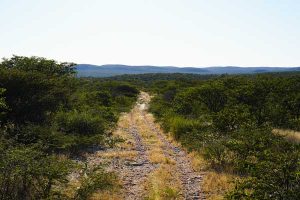Namibia Hunting Safari
Do Namibians have access to electricity? You may be wondering if the country is dependent on fossil fuels and hydropower, or if renewable energy is a possibility. If you have electricity, you will be pleased to know that Namibia has the highest per capita usage of electricity in Africa. However, if you have no electricity, you may want to look elsewhere for your energy needs. Contact us to learn more about namibia hunting

Below, we have listed a few places in Namibia that do have electricity.
Namibia has electricity
The majority of the population does not have access to electricity. Namibia has a poor distribution network, which requires investments in the expansion of renewable energy sources such as solar power. Despite this, private prosumer power plants are needed in rural areas, and the government has established a fund to support the development of renewable energy technologies. These loans will help local entrepreneurs build solar power and wind power projects. The Namibian government is committed to increasing access to clean energy for all residents.
It is a democratic state
What makes a democracy? The author of Democracies in 1984, Arend Lijphart, laid out eight characteristics of a democratic state: freedom of expression, the ability to form organizations, free and fair elections, and alternative sources of information. A democracy is also a country where the people have a say in the making of policy. These characteristics are all rooted in the basic principle of freedom. There are few differences between these characteristics and those of a neoliberal state.
It is dependent on fossil fuels and hydropower
In places with abundant hydropower, it may be prudent to plan for future climate change impacts. Recent droughts in China and Brazil have reduced hydropower capacity. While natural variations will be expected, the impacts of climate change are likely to be greater in the coming years. In California, for example, reservoir levels are lower this year than last. However, the state has other options to meet increasing power needs, including grid-scale battery installations and other renewable energy sources.
It has great potential for renewable energy
The government of Namibia has great potential to produce green hydrogen, a crucial ingredient in carbon emission policies. This gas could also serve as a long-term storage solution for renewable energy. Green hydrogen could be produced by converting renewable energy into electricity, then burning the resulting gas in power plants or storing electricity for later use. The government of Namibia expects to be producing green hydrogen by 2025, and it is already receiving funding from Germany.
It has an underdeveloped electricity distribution network
In the early 2000s, the Namibian electricity supply industry began a transformation process. Previously, the state-owned national power utility, NamPower, had a quasi-monopoly role in the market, supplying electricity to mines, farms, and other large power users. In 2000, the Electricity Control Board assumed its role as a market regulator, and in 2007, the Electricity Act replaced the earlier Act. The Ministry of Mines and Energy remains responsible for developing the electricity industry and serves as a policymaker.
